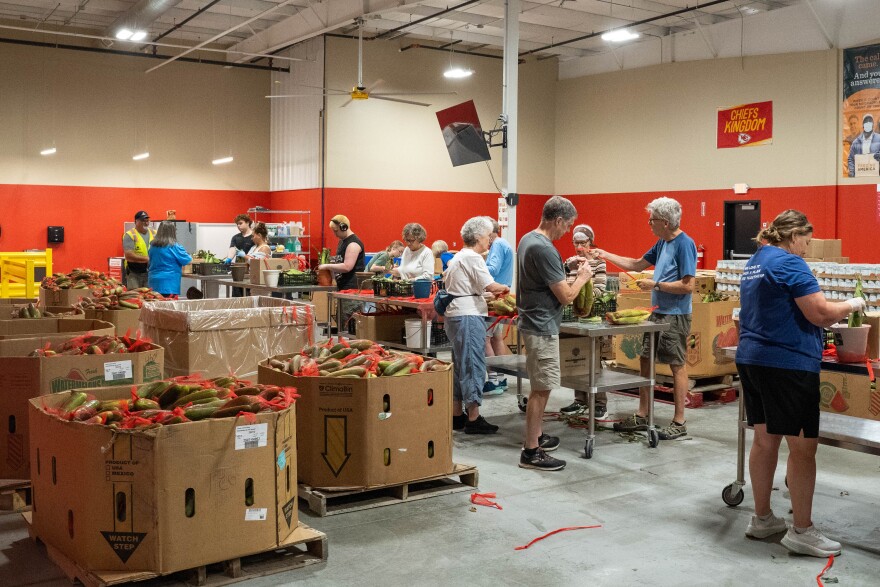With the looming threat of food benefits halting for nearly 190,000 Kansans on Nov. 1, the state’s leaders are split on how to respond.
On Tuesday, Gov. Laura Kelly joined a lawsuit by other Democratic governors and state attorneys general against the U.S. Department of Agriculture for refusing to fund the Supplemental Nutrition Assistance Program, or SNAP.
The USDA website says “the well has run dry” for SNAP benefits to continue into November. But Democratic federal and state lawmakers say the agency is sitting on $6 billion in emergency funding that could help stretch food assistance for a few more weeks.
The lawsuit called the refusal to use contingency funds “a dramatic change in USDA’s policy.”
Kansas Rep. Sharice Davids signed onto a letter of fellow U.S. House Democrats urging the same.
“There are clear steps the administration can and must take immediately to ensure that millions of families across the country can put food on their table in November,” the letter reads.
Meanwhile, some Republicans in Congress, like Kansas Rep. Derek Schmidt and Missouri Sen. Josh Hawley, have said they support legislation to draw down other federal funds to buoy SNAP.
The House bill proposes using “any money in the Treasury not otherwise appropriated” to keep food assistance flowing to the 42 million people on the program.
“In my view, the right thing to do is to reopen the entire government and resume negotiations on full-year funding bills,” Schmidt said in a statement on Tuesday.
“But if a minority of U.S. Senators keeps refusing that approach then reopening critical parts of the government like food assistance is better than nothing at all,” he added.

Schmidt’s office did not grant an interview request. In a statement, Republican Kansas Sen. Roger Marshall's office argued that SNAP contingency funds are not available to replace benefits during a shutdown.
Pressure is mounting on both parties in Congress to reach a deal to fund the government after four weeks of deadlock over health care spending.
The Trump administration has found various temporary funding sources for farm assistance, military pay and nutrition for women and young children.
But without a clear path to funding SNAP after this weekend, food banks across the country are preparing for a surge in demand.
“Lapsing funding for food assistance will have effects long after Congress ends the shutdown,” said John Wilson, president and CEO of the nonprofit Kansas Action for Children.
“We’ll see families struggling to get back on their feet even after their benefits are available again, as well as children’s health and educational achievement suffering,” Wilson said.
Individual states are marshaling a variety of budgetary tools to meet the crisis. Democratic Minnesota Gov. Tim Walz said the state would set aside $4 million of emergency money for food shelves. South Carolina is coordinating with charitable organizations and the State Guard to assist food pantries.
Kelly said she will hold food drives on her statewide budget listening tour to benefit Kansans who have lost employment or welfare benefits due to the shutdown. But she said state funds should not be used to replace federal food assistance.
“States cannot, and should not, take on the federal government’s responsibility to fund SNAP,” she said in a statement.
Zane Irwin reports on politics, campaigns and elections for the Kansas News Service. You can email him at zaneirwin@kcur.org.
The Kansas News Service is a collaboration of KCUR, Kansas Public Radio, KMUW and High Plains Public Radio focused on health, the social determinants of health and their connection to public policy.
Kansas News Service stories and photos may be republished by news media at no cost with proper attribution and a link to ksnewsservice.org.





